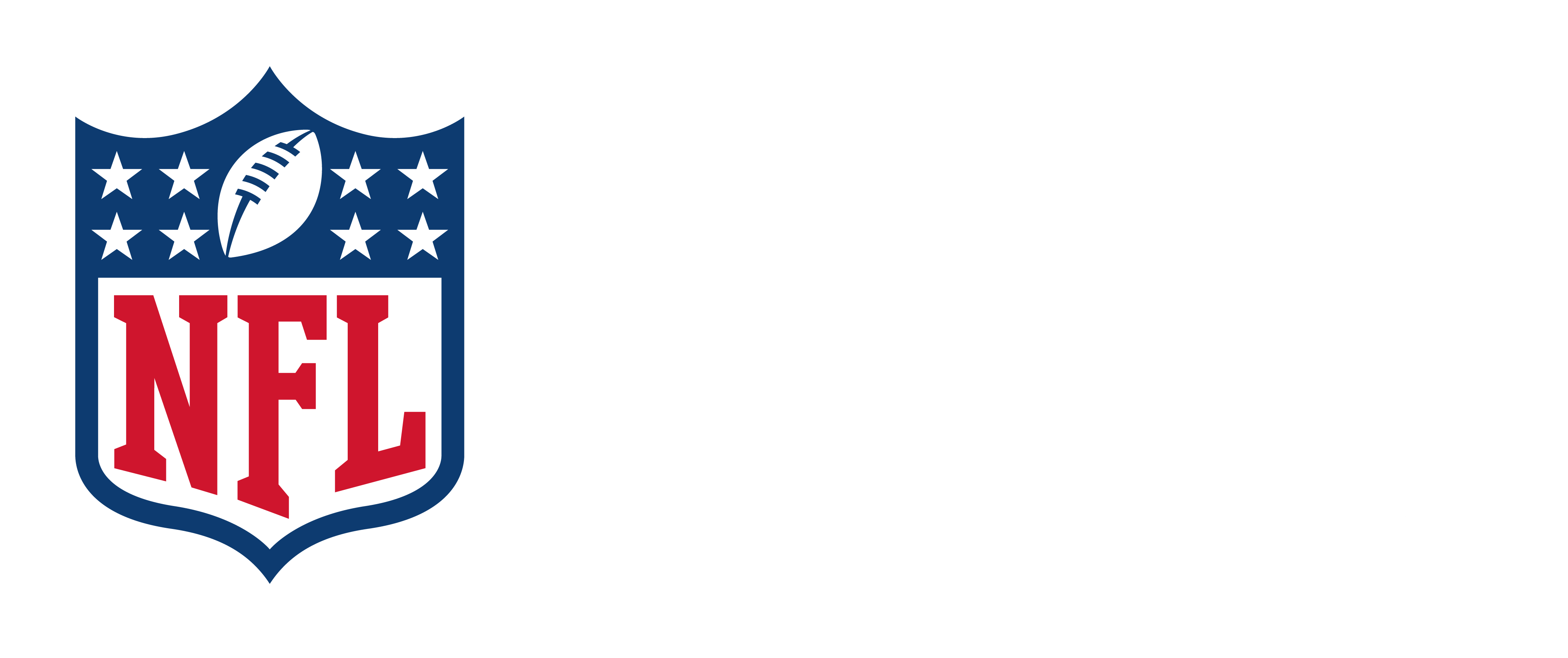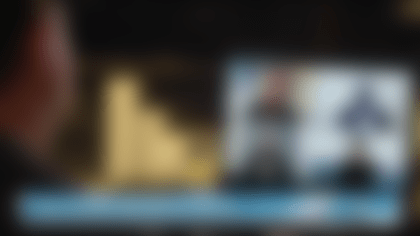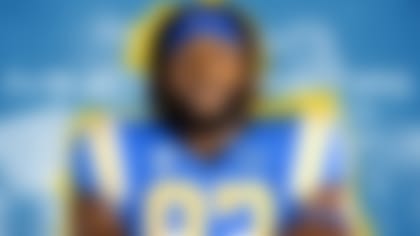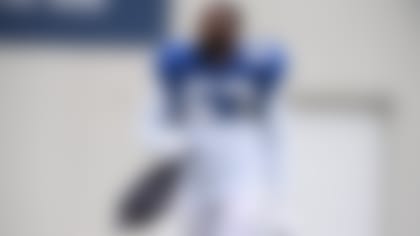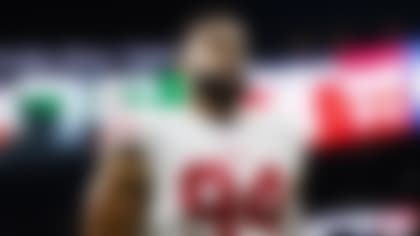In a matter of four days in early June, the world was shocked and saddened by the suicides of two renowned and highly successful figures: Kate Spade and Anthony Bourdain. Each had a profound impact on society prior to death. Their legacies live on and continue to inspire. But Spade and Bourdain left us too soon. Unfortunately, this wasn't the first time we've lost icons in such a tragic manner -- and it won't be the last.
Now more than ever, it's important to be honest about mental health, something new safety Brian Dawkins also shed light on over the weekend. It's crucial for everyone to know that acknowledging personal struggles isn't a sign of weakness, but one of strength. Too often taboo, depression is shut behind closed doors -- especially in a tough-guy sport like football, with a social media environment that glorifies successes and status.
The first time I stepped into a counseling session was in 2002, when I saw a sports psychologist. I was able to retain what helped me reach my peak performance and able to get in the zone, shutting out the noise and negative thoughts on the field. I did that with flying colors, but I wasn't able to grasp that concept in my life outside of the game. I couldn't quiet the noise and negative thoughts in my mind. It wasn't until I stepped away from the game at the end of the 2016 NFL season that I really began to take ownership and understand my personal journey with depression.
Don't get me wrong: I love football. Always have. I took immense pride in being a tough, in-your-face wide receiver, and I am content with what I did in my career. I hung it up after 16 years of antagonizing defensive backs, putting up 14,731 receiving yards and 81 receiving touchdowns on 'em, while making five Pro Bowls and earning two first-team All-Pro nods. Pretty good, right?
Well, what if I told you I never truly enjoyed those moments, never felt genuine delight in my accomplishments?
One common question I contemplated through the highs and lows was simple, but felt so complex:
What's wrong with me?
Despite all of my achievements, I routinely felt trapped, inferior and alone. This overwhelmed me internally and often left me mentally, physically and emotionally broken. Thinking back to when I experienced these emotions most significantly, several specific moments come to mind ...
One goes all the way back to the 2003 NFC Championship Game, when we, the Carolina Panthers, defeated the Philadelphia Eagles. I should have been elated that we were headed to the organization's first in its ninth year of existence. Yet, I couldn't get over the fact that we didn't perform well statistically in the 14-3 win, and hadn't effectively thrown the ball, with just 101 passing yards in that game. I was so upset I couldn't even get myself to hold the conference trophy. We earned the opportunity to become world champions, but in that victory, I felt defeated.
Generally, throughout much of my life, unhappiness, constant self-criticism and an inability to let old blunders go weighed so heavily on my mind. I can recall hundreds of these moments, on and off the gridiron, when I felt inept. It really took a toll on my mental state.
In 2013, my final year in Carolina, I hit a point where I was so overwhelmed that I wasn't sure what to do or how to handle my emotions. Small things in my daily life impacted me in a big way, and I was a cynic of everything and everyone. It was at that point I decided -- with hesitancy -- to try counseling for non-football related matters for the first time in my life. So I went; rather, I had my counselor meet me at my home, because I feared someone would see me walking into a session in a public place. I really had a hard time realizing just how much I wasn't able to handle emotionally. My responses or lack of responses in those early sessions were an indication of what was going on inside.
I continued counseling sessions when I got to Baltimore the following year. I saw small changes in myself, but even more, I started seeing all my flaws. That's a hard thing to accept for anyone. After tearing my Achilles midway through what was to be my final season, I remember sitting in the hospital bed recalling dropped passes from 10 years prior. Mind you, at the time of my injury, I needed just 49 catches to hit 1,000 for my career.
But now, a year and a half has passed since my last NFL game, and for the first time in my life, I finally feel free.
I've learned through hours and hours of counseling -- and am still learning -- so much about the battle I fight within. I find myself, as an extreme introvert defined by my counselor, looking for excuses on how to avoid large crowds and retreating during public appearances, big events and even family gatherings. Being in public is a constant struggle, not because I don't want to attract attention or think I'm "important," but because of my inner battle.
This is all proof that I still face my demons often, but I'm gradually learning how to cope with them. How to understand them. And one thing has become abundantly clear: The best thing I ever did for my well-being was to seek help. I needed someone to help me comprehend how my mind deals with disappointment, grief, failure, etc. -- and, most importantly, how to prohibit that critical voice inside my head from defining who I am on an everyday basis.
I've always been able to beat my opponent, but for 16 NFL seasons, I also beat up on myself. It felt easier, in the moment, to suppress my feelings and move on. If I could do it all over again, I'd be open. I'd talk about -- and not feel ashamed of -- my struggles. My family and close friends have always been supportive in everything I've done or set out to do, yet I shut them out for years due to my own inner struggle. And within the league, there's no doubt I would've had three dozen people reach out if I had been brave enough to bare my soul. But I was extremely broken and afraid of negative judgment. Looking back, I sold those people short.
In a more open and enlightened state these days, I come back to that question that haunted me for so many years:
What's wrong with me?
And now I have an answer: There's nothing wrong with me, nor is there with anyone else who suffers from depression and other mental health disorders. All human beings have strengths and weaknesses, physical and mental. You're defined by how you play the hand you're dealt in life. I've spent the last year grieving, in a sense, the fact that I no longer am a football player -- the one thing I have been my entire life. Reidentifying myself has been quite the process and learning to be OK with that even more so.
My advice to anyone suffering from mental health issues -- and specifically athletes who can relate -- is this: Ask for help. Stop trying to deal with these serious matters alone. You're not alone. Believe me.
*For more information on mental health, visit or call 1-800-273-TALK. Current and former NFL players/coaches can visit the league's Player Engagement website at *
